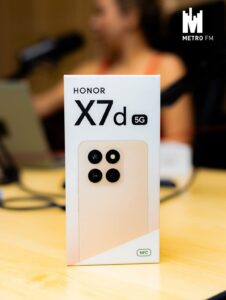
GLP-1 medications are transforming the way people approach weight loss, giving rise to many incredible success stories. But with demand soaring, it’s no surprise that opportunists are flooding the market with watered-down, unregulated, and sometimes dangerous imitations.
Dr Tommie Smook, medical practitioner at Dr Smook and Partners, managed by RXME Group, says the results of legitimate, supervised treatments are remarkable. “We’re seeing extraordinary transformations, with some patients losing over 150 kilograms with GLP-1 over one or two years, when GLP-1 medication is combined with proper medical supervision and supportive lifestyle changes.”
GLP-1, short for glucagon-like peptide-1, is a natural hormone released after eating that helps control blood sugar, slow digestion, and curb appetite. GLP-1 medications mimic this effect, helping people manage their weight and blood sugar more effectively.
“This is a medical breakthrough that’s changing lives in profound ways. That’s why it’s critical to address the misinformation and unethical practices that are giving GLP-1s an undeserved bad reputation.”
The clear divide between safe and unsafe
The gap between legal and illegal GLP-1 products is vast. Legal medications are clinically tested, correctly dosed, and prescribed and monitored by registered doctors. Illegal or counterfeit versions, often sold online or through unlicensed sellers, expose patients to serious health risks.
Dr Smook offers ten simple checks to confirm that your GLP-1 medication is genuine:
- Look for proper licensing
Legitimate providers are registered with the Health Professions Council of South Africa (HPCSA), and hold an active dispensing licence, verifiable on their official online register. If they can’t provide proof, it’s best to walk away. Clinics like Dr Smook and Partners are transparent, leaving no room for doubt.
- Demand a prescription
GLP-1 medication is a Schedule 4 drug and may only be prescribed by a licensed medical professional. If offered without a prescription or evaluation, it is a strong indicator of an unlicensed and unsafe practice.
- Seek personalised and verified treatment
Every dose must be prepared on prescription for the individual patient at a compounding pharmacy registered with the South African Health Products Regulatory Authority (SAHPRA). This guarantees that ingredients, strength, and sterility are correctly controlled.
- Check for ongoing medical oversight
Weight-loss medication should never be given without a structured treatment plan. Your doctor must continually monitor progress, adjust dosages, and schedule check-ins to ensure effectiveness.
- Avoid online shortcuts
Unverified online sellers often promise quick access but frequently supply counterfeit or expired products. Buying illicit medicines, online or in person, can also carry significant legal risks.
- Verify the packaging
Registered GLP-1 medication comes in sealed, tamper-proof packaging with clear instructions, and displays the correct name and SAHPRA number. Compounded versions use plain labels with the patient’s name, dosage, expiry, and dispenser details.
- Ask where it was sourced
Only licensed doctors and pharmacies may dispense this medication. Distributors are not permitted to sell directly to patients. Anything offered outside the registered channels is not legitimate.
- Pay attention to side effect guidance
A trustworthy professional will explain possible side effects and how to manage them. If concerns are dismissed, it is a sign of an irresponsible practice.
- Insist on holistic care
Authentic providers will pair treatments with the proper diet, exercise, and lifestyle support customised to your unique needs. This is why medical professionals like Dr Smook and Partners emphasise complete care instead of a one-pill-fixes-all approach.
- Trust your instincts
If something feels off – the provider’s attitude, environment, or product itself – it probably is. A legitimate clinic will give you confidence from the first consultation through every step of treatment.
The dangers of black-market pharmaceuticals
When these checks are ignored, patients may unknowingly turn to black-market sources, where safety and accountability disappear. Notably, South Africa’s medical black market typically operates in three ways:
- The unregulated sale of GLP-1s without prescriptions – some of which may be counterfeit, expired, or diverted from legitimate supply chains.
- The widespread sale of cheap, diluted imitations, often with harmful ingredients.
- Unethical practitioners prescribing without proper supervision.
Risks include severe allergic reactions, infections from non-sterile injections, and unpredictable blood sugar changes from incorrect dosing. Unmonitored use can mask serious complications, while buying through unregulated channels exposes patients to financial loss and privacy breaches.
“The key issue is accountability,” explains Dr Smook. “Without oversight, no one adjusts doses, monitors progress, or intervenes if complications occur. Without regulation, there’s no assurance that the vial contains what the label claims. And without professional guidance, patients risk being left alone when expert care is most essential. Any suspected black-market sales can be reported safely through the SAHPRA hotline at +27 12 313 3900.”
About The Author
![]()
Subscribe To Our Weekly Newsletter










